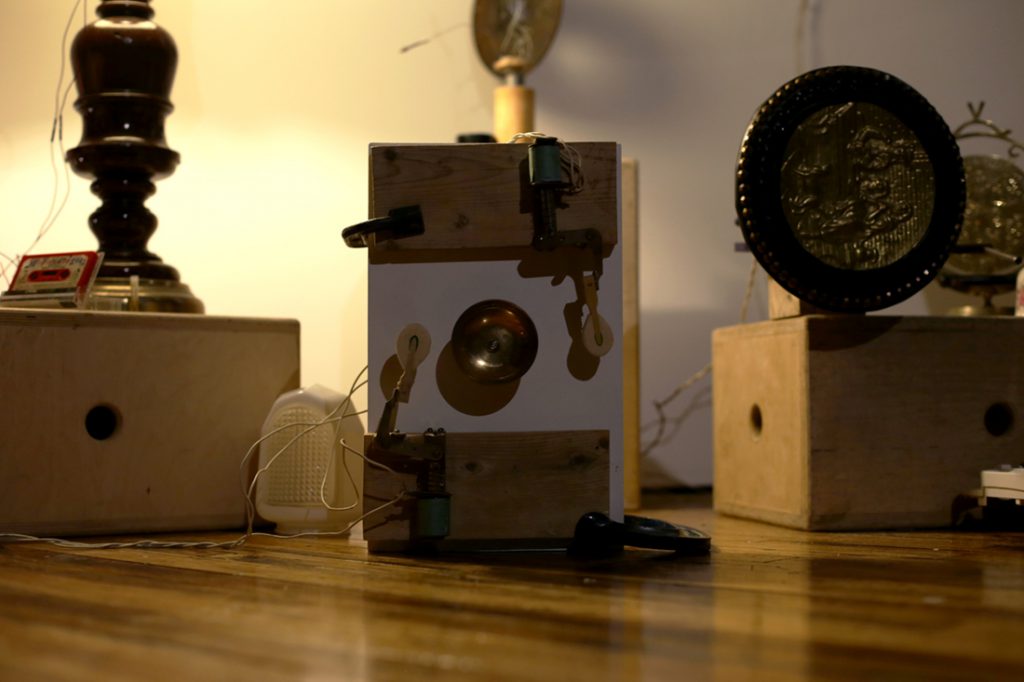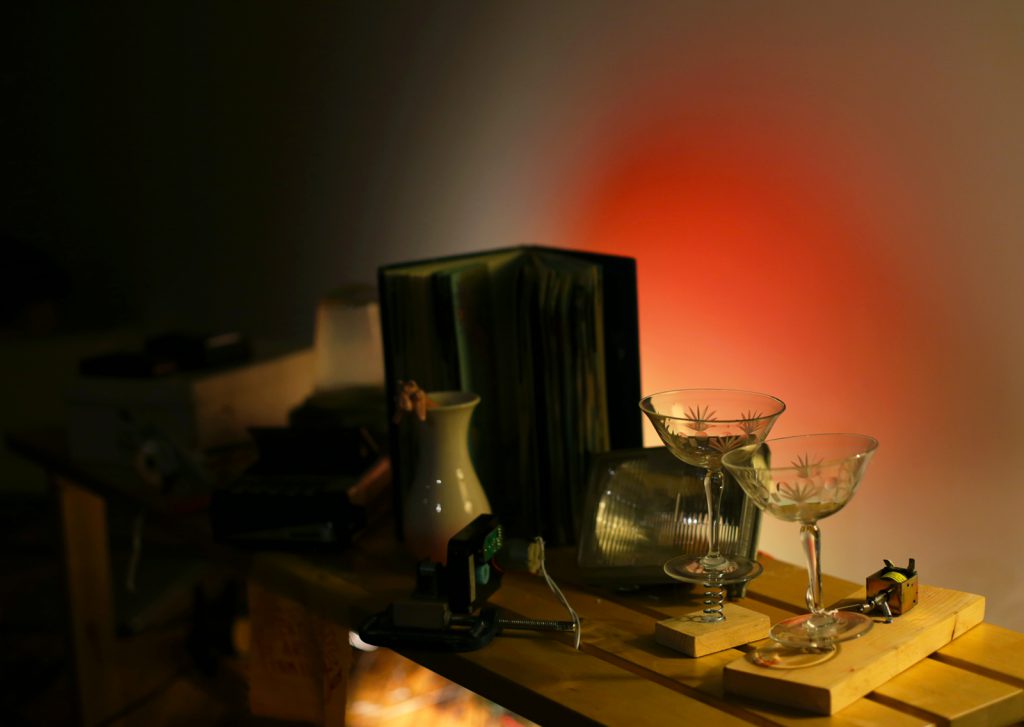The Objects That We Carry: Lorena Salomé at Trinity Square Video
13 October 2021
By Noor Alé
Migrancy, and its generative potential to create a series of movements, is an enduring interest of Lorena Salomé—a Toronto-based Argentinian artist—whose practice employs technology to activate commonplace objects and dismantled electronics to create kinetic works. In Salomé’s exhibition, The Objects We Carry1 at Trinity Square Video, co-presented with Public Visualization Lab in Toronto, she examined issues relating to global migration, gentrification, and eviction through an installation that invited community participation, as well as a series of collaborations with artists whose practices are engaged with travel.
Scheduled during the spring months of 2020, the public programs included moderated panels, community-engaged dinners, and artist talks. Artist Alexandra Gelis and filmmaker Jorge Lozano spoke with Salomé about artmaking as immigrant artists who render visible power relations through their lens-based practices. A Trinidadian dinner was co-prepared by writer Rea McNamara using intergenerational recipes from the Naparima Girls’ High School Cookbook, a major cuisine tome in Trinidad and Tobago. And video artist soJin Chun spoke about her work in Horto, a 200-year-old community in Rio de Janeiro facing the risk of forced eviction by the Brazilian government. The practices of these Latin-American and Caribbean artists engaged with transnational dialogues, inviting us to think globally and beyond the immediacy of our locality.
As part of her installation, Salomé invited visitors to loan objects that were imbued with memories of migration. Comprising a Super 8 home movie film cassette, dinner bells, lamps, glasses, spoons, and electronics, the collective presentation of these objects created a forum for personal accounts of migration. These eclectic items were hung on a wall, placed on the floor, and propped on boxes and a wooden table, loosely recalling a domestic space of sorts. The owners of these objects and stories are uncredited in Salomé’s installation, a decision that intimates a communal history of movement shared between strangers across imagined neighbourhoods, cities, countries, and continents. The translocation of these objects from their original homes alludes to the emotional and physical toll of moving.

When I viewed The Objects That We Carry, I was reminded of a passage in feminist writer Julietta Singh’s No Archive Will Restore You. In it, she reflects upon the powerful entanglements between the body, memory, and objects: “Every object is a narrative that is embedded in me, and how that object came to be mine is an embodied history.”2 As an immigrant to Canada, the inability to visit my ancestral homelands is marked by several factors: our current global pandemic, political and social upheavals, warfare, and distances that cannot be bridged without long flights. When I emigrated from Mexico City to Toronto, I took with me address books—obsolete ledgers by today’s standards—that are perhaps as dated as the geographic atlas of Latin America, as well as dinner bells and film reels, all exhibited in The Objects That We Carry. Salomé’s installation treats personal belongings as a nomadic and ever-shifting archive—a swelling body of disparate objects that knows no geographic boundaries.
Objects such as these belong to an emotional economy, ascribed with a value that is weighted by memory, place, and time. As part of her installation, Salomé’s open call invited individuals to include treasured mementos associated with willful or imposed (re)settlement. Using repurposed electronics, the artist created mechanical interventions throughout the installation, where various objects were made to shake, turn, or spin. A tambourine, a pepper shaker, and cocktail glasses were among the objects put into motion. Their movement relied on the cooperation of various processes that were dependent on one another, nodding towards the entanglement of global migration. These animated objects referenced circuits of diasporic histories that overlap transnationally and intertwine personal narratives of belonging, resilience, and memory.

Through incorporating personal belongings owned by members of the public into the logic of her installation, Salomé weighs the emotional value of objects against their intrinsic, economic value. Charged with the memories of their keepers, many of the displayed artifacts could be mistaken by others as junk. I regret not including a Polaroid of a former partner in Salomé’s show—a fugitive image that has travelled with me over countless moves—an isolated record of a memory that resists being forgotten. In many ways, this photograph operates as a souvenir of our meeting, a chance encounter that wouldn’t have happened had I not chosen to relocate to another neighbourhood.
With uncertainties of distance and time amidst our continued global lockdown, The Objects That We Carry holds open an accessible entry point into various overlapping currents, which define global interconnection both in this time and those prior. In deciding to carry objects forward with us in time, we’re left to shoulder their weight; that Polaroid of my former partner signals nostalgia for a time before our parting and a desire to return to a time that precedes this radically different reality in which we now find ourselves. When faced with the unlikelihood of returning to sites of personal significance, objects amassed over a lifetime of relocations and forced displacements remind us that all that is far can be within reach, even if only through mementos.
- The Objects That We Carry was co-presented by Trinity Square Video and Public Visualization Lab as the inaugural Traversal Residency, a dedicated program that supports BIPOC artists in conducting research-based activities in the settings of academic institutions or artist-run centres.
- Julietta Singh, No Archive Will Restore You (Goleta: punctum books, 2018), 40.
The Objects That We Carry ran from February 26 – March 18, 2020 at Trinity Square Video in Toronto, ON.
Feature Image: The Objects That We Carry, 2020 by Lorena Salomé. Photo by Immony Men. Courtesy of the artist and Public Visualization Lab.



